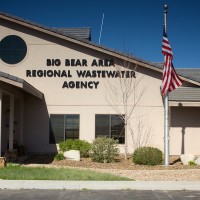
Most water agencies in Southern California are proposing increased water and sewer rates over the coming budget years to cover increased costs for water, maintenance, infrastructure replacement and waste water treatment.
According to a study last year by the rating agency Fitch, seventy-eight percent of the agencies polled have increased rates this year. While most agencies are averaging an annual 5% rate increase in 2016, one of those polled was increasing rates by 31%. Some cities such as Redlands are proposing to hike rates as much as 40 percent in three years for water and sewer services.
California mandates to reduce water consumption statewide, and the generally successful conservation efforts of California residents have created financial problems for water agencies in the state. While the amount of water used by customers and the wastewater that must also be treated has dropped, the costs of providing those services continues to increase.
The maintenance and replacement of water and sewer systems is not entirely dependent upon the amount of water used. When conservation is successful, the costs of the infrastructure must be spread over fewer gallons of water provided and effluent generated. But a recent success story in Big Bear, California is proving that with proper planning and management, wastewater utilities can keep rates down for customers.
The Big Bear Area Regional Wastewater Agency (BBARWA), a Joint Powers Authority comprised of the City of Big Bear Lake, the Big Bear City Community Services District, and the County of San Bernardino, has recently projected that rates for service are expected to remain stable until at least June of 2018.
According to General Manager Stephen Schindler, previous rate increases along with lower costs than previously projected will allow BBARWA to maintain current rate levels to the joint power service members it provides wastewater services too.
“Rate management is a priority for BBARWA and is accomplished through long-term planning,” stated Schindler. “Over the long-term, we will strive to manage cost increases to the level of inflation.”
Cost savings have been achieved through strict financial management and oversight, lower than expected inflation, reduced salary and benefits expenses, and ironically enough, due to the reduced effluent produced due to conservation efforts of member agencies and the drought.
While agencies in the Joint Powers Authority may have infrastructure requirements beyond BBARWA’s services, any rate adjustments for those agencies would be based on their individual infrastructure needs, according to Schindler.
The agency was a recent recipient of wastewater treatment “Plant of the Year” from the California Water Environment Association and a Certificate for Achievement in Excellence from the Government Finance Association of the United States and Canada


